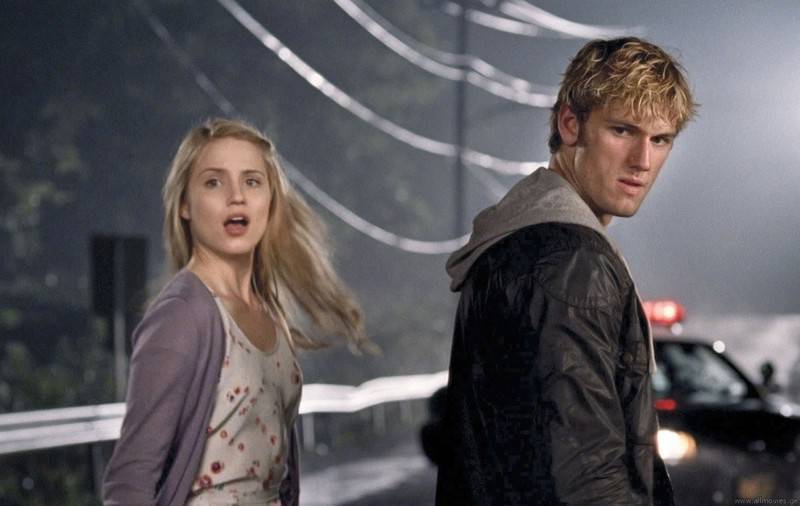FALFURRIAS, Texas?? While walking along a dirt road bordering his property, a South Texas farmer complained about living in fear of Mexican traffickers smuggling drugs and illegal immigrants across his land. He would later ask his visitor not to reveal his identity, for his safety and that of his family.
-
Only on msnbc.com
- Military families say 'Cheese!'
- Day two of big crowds for Gingrich
- Nurse! Medicare dollars tied to patient satisfaction
- US ranchers: We live in fear along Mexican border
- American filmmaker in Cairo tells of arrest ordeal
- Black Friday shoppers get bargains, less brouhaha
- UK town records song for war dead
"I'm a citizen of the United States. This is supposedly sovereign soil, but right now it's anybody's who happens to be crossing here," he said. "I'm a little nervous being here right now. Definitely don?t come down here after dark."
The farmer said a federal law enforcement agent told him to buy a bulletproof vest to use while working in his fields. Whenever he goes out to survey his agricultural operations, he always tells his office where he is headed, and he has purchased a high-powered rifle.
"One of the basic points of the federal government is to protect the people of this nation to secure the border, and they're not doing that," he complained.
Story: Cartels using Ariz. mountaintops to spy on copsThe Obama administration and many local officials have said the U.S.-Mexican border is safer than ever and that reports of violence on the American side are wildly exaggerated. But the farmer scoffed at that argument. "I walk this soil every day and have since I was old enough to come out on my own," he said. "In this part of Texas, it is worse than it's ever been."
Moving families to safer ground
A report recently released by the Texas commissioner of agriculture said cross-border violence was escalating. "Fear and anxiety levels among Texas farmers and ranchers have grown enormously during the past two years," the report said, adding that some ?have even abandoned their livelihoods to move their families to safer ground."
Retired U.S. Army Gen. Barry McCaffrey, who served as the U.S. drug czar during the Clinton administration and as an NBC News military analyst, is a co-author of the report. During a recent interview, McCaffrey said that while major cities along the Texas border are "pretty safe," the rural areas between towns are "largely unprotected, and across those areas the (Mexican) cartels are conducting massive movements of illegal drugs and other criminal activity."
Story: Mexican cartels corrupting more US border officials?Law enforcement agents say they are seeing more aggressive efforts by Mexican traffickers operating in the Rio Grande Valley. In South Texas alone, the traffickers smuggle hundreds of tons of drugs a year into the United States by floating them on rafts across the Rio Grande, then transporting them by car, truck or on foot ? often across private land ? into the United States.
Video: 'Like living in a war zone' (on this page)The smuggling ?clearly has intimidated U.S. citizen who don't believe they're safe on their own land in their own country," McCaffrey said.
Several Texas congressmen and sheriffs have condemned the report, saying its conclusions are overstated and politically driven. But McCaffrey claims the officials not facing facts.
"I think there is an element of denial," McCaffrey said. "Inside the beltway the senior law enforcement, I think, have fallen in line and said, no, that's right, the U.S. border is the safest place in America, which is errant nonsense."
Ranchers protecting themselves
Veterinarian and rancher Mike Vickers heads the Texas Border Volunteers, a group of about 300 landowners and supporters who work closely with law enforcement officials to track drug and immigrant smugglers entering the U.S. from Mexico and crossing private land. His primary concern, he said, is the safety of farmers and ranchers who have been confronted by armed traffickers.
"A lot of them have been threatened not to call the Border Patrol or law enforcement if they see smuggling going on their property, otherwise they'll be killed or their family members may be killed," he said.
Video: 'It's compromised our lives' (on this page)During a tour of his land and that of a neighbor, Vickers pointed out numerous hiking trails worn by smugglers and illegal immigrants from around the world. He also showed where many parts of the wire fence had been cut and pulled back. "This is not done by wildlife," he said. "This is done by smugglers and more than likely drug smugglers that have heavy backpacks full of drugs so they can drag the backpack underneath and not have to throw it over the fence."
In order to prove their claims that thousands of smugglers and illegal immigrants are crossing private American land, the Texas Border Volunteers have erected hidden cameras and share the images with state and federal agents. Describing one of the pictures, Vickers said, "This individual's got at least 80, maybe 100 pounds on his back. This is probably marijuana with a canvas covering." Another black and white photograph showed a man hoisting a smaller load. "You know he's carrying at least 40 pounds of drugs in that backpack. We suspect cocaine."
Video: Drug flow from Mexico on the riseVickers said that since 2004, about 500 people, mostly illegal immigrants, have perished while on smuggling trips through private property in Brooks County, Texas, alone, where his ranch is located.
A war zone?
Todd Staples, the Texas agriculture commissioner and a candidate for lieutenant governor, argued that many leaders in Washington, D.C., continue to ignore the violence along the border. In a recent article he wrote, "A Webb County rancher checking his cattle is shot at and barely escapes with his life; the suspects are linked to drug cartels. Workers in a Hidalgo County sugarcane field are told by cartel members to stop harvesting the crop 'or else," because the sugarcane provides coverage for cartel coyotes smuggling drugs."
Vickers said he knows ranchers who have moved their families into nearby cities for their protection and have taken other safety measures. "Everyone is packing a weapon and carrying a cell phone with them. and they're crazy if they don't," he said. "This is happening on American soil; this is a war zone here, there's no question about it."
The use of the phrase "war zone" to describe the U.S. side of the border is controversial. The report to the agriculture commissioner states, "Living and conducting business in a Texas border county is tantamount to living in a war zone in which civil authorities, law enforcement agencies as well as citizens are under attack around the clock."
Video: Drug violence comes to Mexican resort (on this page)Democratic congressmen and some local officials say that conclusion is unfair. Hidalgo County Sheriff Lupe Trevino was recently quoted by the Houston Chronicle as saying, "The border is not in chaos.? And the newspaper quoted Rep. Silvestre Reyes, a Democrat representing El Paso, as calling the claims "political rhetoric" meant to embarrass the Obama administration.
Among ranchers, farmers and law enforcement agents working at the ground level, however, there is considerable agreement that large-scale drug smuggling from Mexico into the United States has been increasing in recent years and that the traffickers are becoming more aggressive. For the farmer too afraid to be identified publicly, it creates a painful dilemma.
"I can't pick up and move this farm; we're tied to the land," he said. "This is the front door to our country. Help us stop it here."
? 2010 msnbc.com? Reprints
Source: http://www.msnbc.msn.com/id/45440385/ns/nightly_news/
pacific standard time local time lsu alabama earthquake when is daylight savings 2011 what time is it lsu vs alabama








